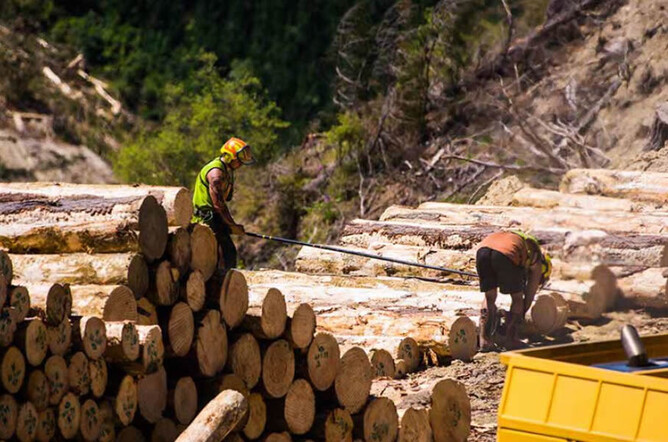This is a joint press release between FICA, Safetree and NZFOA.
As we have all seen in the media and through our industry communication platforms in last 10 days, there is a multitude of factors all compounding the export market now perfect storm has arisen and this is putting considerable pressure on the domestic market and, particularly, harvest contracts.
We would traditionally have seen a downturn at the end of February each year with the impact of the Chinese New Year. What is happening is five months early and at the worst time of the year, just prior to the December festive period when the industry would traditionally be looking forward to a well-deserved break.
We are not the only sector being impacted by some of the factors at play but, as occurred with Covid two years ago we are the first to feel some of the offshore impacts and to be reminded how much the external and domestic markets are intertwined.
Anecdotal comments that come in are always hard to put a quantifiable figure on as the issues and regions come with their own complexities but to gather facts, a survey was put out to both Forest Industry Contractors Association (FICA) members and Log Transport Safety Council (LTSC) members last week.
“The results were very much a “mirror image” of both sector groups and a clear overview of the issues which shows the influence on the downstream supply chain and how vulnerable contractors are whether they are involved in forestry or transport”, acknowledged Warwick Wilshier, Chair of LTSC.
The survey indicated that 35% of the sector are fortunate to be on business as usual while the other 65% are on reduced volumes and variations of shut down from set finish dates to extra time off over the Christmas break. Alarmingly those on reduced volumes indicated they were between 20-40% down with little idea when that would improve.
Most of the respondents were from around the Central North Island and Hawke’s Bay regions with Northland not too far behind. Interestingly the Eastland region had indicated that they were one of the first regions to be affected by this latest downturn, but others are being affected as much if not more as time goes on.
For those owners managing larger, multiple age class, forests there is a strong incentive, and greater ability, to maintain production than for smaller holdings where the harvesting decision determines most of an individual’s investment return.
It is important currently to be communicating any information or improvements around the challenges we face like shipping, Chinese log stocks, or any CoVID related issues so that everyone is in the best position to make decisions especially contractors who are working hard to manage their crews. This will benefit everyone when ultimately the market environment changes, and production requires a solid workforce to get back to full production.
“It’s a balancing act for everyone and we understand that export is not sustainable when the cost of production exceeds the returns but there are other ways to support the workforce and we all need to be exploring these opportunities,” commented David Rhodes, CEO for NZ Forest Owners.
Government agencies have been contacted and there is support dependant on the need, so they encourage contractors to reach out to regional Ministry of Social Development offices. For those that indicated financial support would be prioritised by financial lending support and taxation relief, these are clear messages we are taking to government and lending institutions.
“However, it’s very important to have honest conversations with your banks and accountants to work with you on a management plan. We continue to support our claims with the facts through these surveys, so it is important that you respond as we need evidence to clarify and portray the challenges we are facing,” confirms Prue Younger, CEO Forest Industry Contractors Association.
While the export market remains vital for consuming the level of production from our national forest estate the current situation does reinforce the benefits of increasing domestic processing capacity in line with the objectives of the Industry Transformation Plan. Meantime we are having the right conversations, continue to understand the environment and stress we are doing what we can to engage with all parties to keep the communication open, honest, and collaborative to find solutions that will ease the impacts where we can.
ENDS/
More Information
Please contact FICA to refer you to the appropriate contacts at LTSC and NZFOA for more information as required.
FICA
office@fica.org.nz
Prue Younger
021 276 5484




